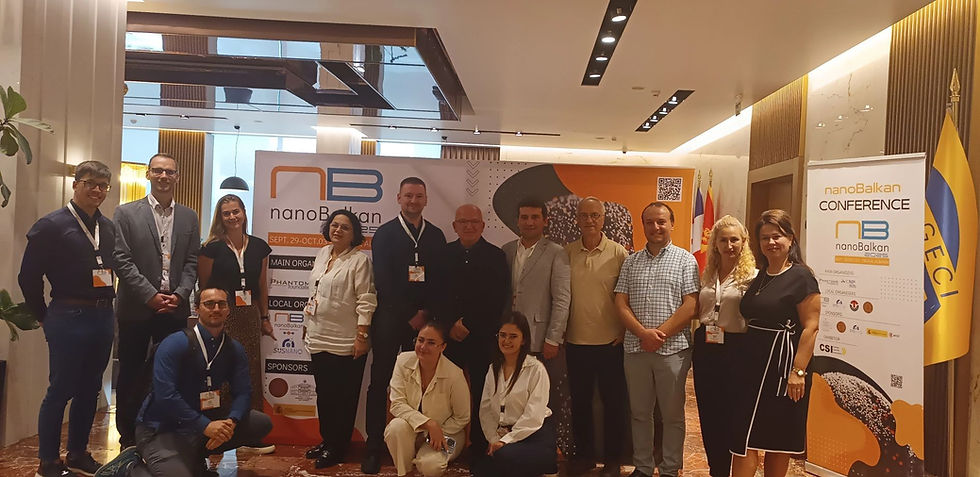Official SUSNANO Kick-Off Meeting held in Tirana
- annazmiievska
- Nov 4, 2022
- 2 min read

The SUSNANO project was officially launched at a kick-off meeting held in Tirana, Albania, on 5th October 2022, in parallel with the TNT2022-NanoBalkan Conference. Representatives of the University of Tirana met to review the objectives and timing of the project work packages and to plan the next steps with its Twinning Partners: ICN2, Spain (specifically, the Nanobioelectronics and Biosensors Group led by Prof. Arben Merkoçi), Palacký University Olomouc, Czechia (specifically, the CATRIN research group Carbon Nanostructures, Biomacromolecules and Simulations led by Prof. Michal Otyepka), and Intelligentsia Consultants, Luxemburg (led by Giles Brandon).
SUSNANO, or to give its full title ‘Twinning to boost the scientific and innovation capacity of the Universiteti i Tiranes to develop sustainable nanosensors for water pollution detection’, is a three-year project funded by the European Union in the framework of the Horizon Europe Programme under the ‘Twinning Western Balkans’ call (HORIZON-WIDERA-2021-ACCESS-02). This call was especially designed to contribute to the European Community policy initiative to support Western Balkan countries, which aims to spur the long-term economic recovery of the region, support a green and digital transition, as well as foster regional integration and convergence with the European Union.
The project aims to conduct exploratory research on sustainable nanosensors and develop a portable device for the quality assessment of freshwater. The sensors, which will be based on graphene-related nanomaterials, should be capable of detecting heavy metals, pesticides, and antibiotics in water. Techniques such as inkjet, stamping and screen-printing will be used for their fabrication. The validated devices will be used in field tests to provide an environmental assessment of rivers and lakes in Albania.
In addition to the scientific and technological aspects, the Twinning scheme puts a strong focus on raising the research profile and boosting the development of the Western Balkan institute involved in the project (in this case, the University of Tirana), with the support and collaboration of the partners. Consequently, a number of actions are planned to achieve this result. In first place, the interchange of knowledge between experienced researchers and the enhancement of early-stage researchers’ career prospects will be pursued by means of short- to medium-term staff exchanges, training workshops, seminars, and a joint PhD programme.
Furthermore, specific actions will be carried out to improve the skills of the University of Tirana’s Directorate of Scientific Research, Projects and Foreign Relations in proposal preparation and project management for European R&D funding programmes. Finally, a comprehensive range of dissemination, exploitation, communication and outreach activities will be organised.




Comments